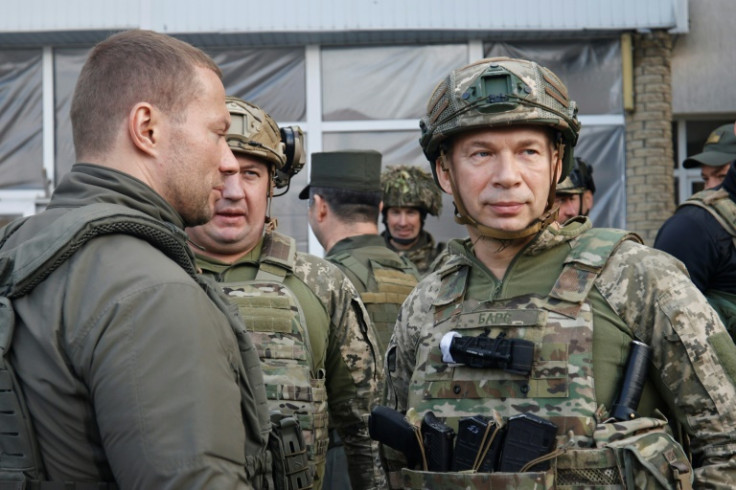
Ukraine's new armed forces chief, Oleksandr Syrsky is credited with defending Kyiv when Russian forces invaded, helping to scupper the Kremlin's plans to bring the country to its knees within days.
Ukrainian President Volodymyr Zelensky on Thursday appointed the 58-year-old as head of the army, dismissing Valery Zaluzhny after days of swirling rumours about a major military reshuffle in wartime.
Days after Russia abandoned its attempt to seize the Ukrainian capital last year, Zelensky had awarded Syrsky the Hero of Ukraine award, the country's highest honour.
In the April 2022 decree, Zelensky praised Syrsky's "personal courage" and his "significant contribution to the defence of Ukraine's sovereignty and territorial integrity".
Six months later, Syrsky inflicted yet another humiliating defeat on Russia, commanding Ukraine's lightning Autumn 2022 counter-offensive in the northeastern Kharkiv region.
The assault stunned Russian forces into an embarrassing retreat and reclaimed swathes of territory.
Despite those successes, Syrsky is not a national icon like his predecessor Zaluzhny, admired by Ukrainians across the country and adored by his troops.
Some 48 percent of Ukrainians said they had not heard of Syrsky, according to a December 2023 poll.
He rarely makes headlines, unlike Zaluzhny or Zelensky, who in two years of war have risen to celebrity status around the world.
While lacking in charisma compared to other senior Ukrainian officials, the Syrsky is content with dry official communications.
But his staff say this does not mean he has confined himself to a desk.
Syrsky is "one of the few high-ranking commanders to regularly visit the frontline," army spokesman Illia Yevlash told AFP.
The influential news site Ukrainska Pravda this week published a column suggesting Syrsky is not sensitive to losses.
He "has developed a reputation as a man who values getting things done more than the number of lives he sacrifices to do so," the article read.
The army often publishes footage of him in combat gear, wearing a helmet, bullet-proof vest and armed, shaking hands or laughing with soldiers in trenches.
Like most senior officers of his generation, Syrsky was born in Soviet Russia, in 1965, and studied at a Red Army academy in Moscow.
In the 1980s he was deployed to Ukraine, then part of the Soviet Union.
But when the Soviet Union collapsed, he remained in Ukraine, studying at the National Defence University in Kyiv and joining the ranks of the newly independent Ukrainian army.
In the 2000s he was head of the Ukrainian army's 72nd mechanised brigade, based in Bila Tserkva, around 100 kilometres (62 miles) south of Kyiv.
He was made a general in 2009 and later, as part of Ukraine's military command, was involved in developing cooperation with NATO.
When Russia annexed Crimea and unleashed a separatist conflict in 2014, Syrsky became one of Kyiv's top commanders in a war to prevent Russian-backed forces from seizing the whole of the eastern Donbas region.
In early 2015, he coordinated a difficult retreat from Debaltseve, a major railway junction where the Ukrainians were heavily outnumbered.
Two years later Syrsky was appointed commander of Ukraine's entire military operation in the east -- overseeing troops across a frontline that remained largely static until Moscow launched its full-scale invasion from the east, north and south in February 2022.







